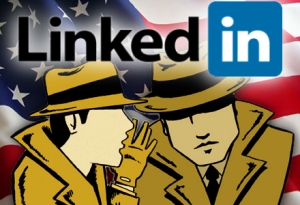 While payment processor QuickTender/UseMyWallet has begun refunding players’ funds that were caught in limbo following the Blue Monday indictments, only those funds that had been declared ‘cleared’ were making their way back to players’ bank accounts. The other funds, which QuickTender defined as having been seized ‘in transit,’ were thought to have been frozen in a New York financial institution by the US Secret Service just prior to Blue Monday. But no one knew the precise fate of these funds … until now.
While payment processor QuickTender/UseMyWallet has begun refunding players’ funds that were caught in limbo following the Blue Monday indictments, only those funds that had been declared ‘cleared’ were making their way back to players’ bank accounts. The other funds, which QuickTender defined as having been seized ‘in transit,’ were thought to have been frozen in a New York financial institution by the US Secret Service just prior to Blue Monday. But no one knew the precise fate of these funds … until now.
‘BigOlTatties’, a poster on the 2+2 forum, has tracked down a notice on the US Department of Justice’s forefeiture.gov site that cites $1,820,008.93 having been seized “between on or about May 9, 2011 and May 17, 2011, from Deutsche Bank Trust Company Americas Account No. 04013685, held in the name of ABN AMRO Bank NV (11-USS-000627), Deutsche Bank Trust Company Americas, 60 Wall Street, New York, NY.”
Interestingly, while the funds were seized in New York, the action was carried out at the behest of the US Attorneys Office in Fort Myers, Florida. Their Verified Complaint for Forfeiture In Rem states that the funds were seized from Chargestream, the parent company of both QuickTender and UseMyWallet, because “the wire transfers conducted through Chargestream’s bank accounts involving funds derived from illegal gambling which constitutes a violation of the money laundering provision of 18 U.S.C. § 1956(a)(1)(B)(i), because they are financial transactions designed to conceal the nature, source, ownership and control of the funds being transferred.” (View the full Verified Complaint for Forfeiture here.)
The related affidavit filed by United States Secret Service (USSS) Southwest Florida Financial Crimes Strike Force (SWFFCSF) Agent Grant Wagner states that the USSS arrested an unnamed Florida resident in Feb. 2010 for “operating an unlicensed money transmitting business” who subsequently admitted “acting as a third party payment processor for online gambling entities.” A subsequent review of documents from Deutsche Bank Trust Company Americas between July 28, 2010 and Feb. 3, 2011 identified 13,077 transactions handled by Chargestream totaling $52,957,271.24. Chargestream processed most of its funds via incoming wires from Deutsche Zahlungsverkehrsgesellscha (geshundeit!), Internet Merchant Services Ltd. and Schindler’s Escrow Services. (View the full affidavit here.)
On Feb. 10, 2011, a Federal Seizure Warrant was served on Standard Chartered Bank by the Fort Myers USSS for wires being sent by or on behalf of Lakesand Pesim Energy AG, which operated in the same manner as Chargestream. The affidavit claims that several poker players were identified as having received wires from both Chargestream and Lakesand.
LINKEDIN, RATTED OUT
The affidavit also confirms the online poker community’s long-held suspicion that the Feds are monitoring internet gambling forums to identify the methods by which players are moving money to and from online gambling sites. However, in this case, the feds also examined accounts on social networking site LinkedIn that identified the account holder’s occupation as a professional poker player. The Florida affidavit cites three such players, including a self-identified “Team Pro at Cardrunners LLC” based in Detroit who received over $309k in payouts via Chargestream between Aug. 16 and Nov. 3, 2010. A Las Vegas-based “professional poker player, coach, and video producer at cardrunners.com” received over $151k between Aug. 9, 2010 and Feb. 2, 2011. Another Las Vegas resident, identified as a pro player “through an internet search of poker related websites” received over $449k between Sept. 16, 2010 and Feb. 3, 2011.
On April 18, 2011, Agent Wagner and USSS Special Agent Nicholas Menster paid visits to the homes of several players (identified only as Witness 1, 2 and 3) based in Cape Coral, Florida. Confronted with the agents’ evidence, Witness 1 identified Full Tilt Poker as the source of three bank wires he’d received in 2010 and 2011. Witness 2 claimed not to recall the names of the sites on which he gambled. Witness 3 cited Red Flush Casino as the source of his ill-gotten gains.
While the DoJ forfeiture notice lays out the mechanism by which claims can be made for return of the seized Chargestream funds, the DoJ is evidently taking the stance that this money was seized from Chargestream, and thus is considered Chargestream’s loss. As such, individual players may be considered as ‘unsecured creditors’ which would basically allow the feds to ignore any claim players might make. But their complaints on 2+2 are likely being transcribed by faceless DoJ drones as we speak…
